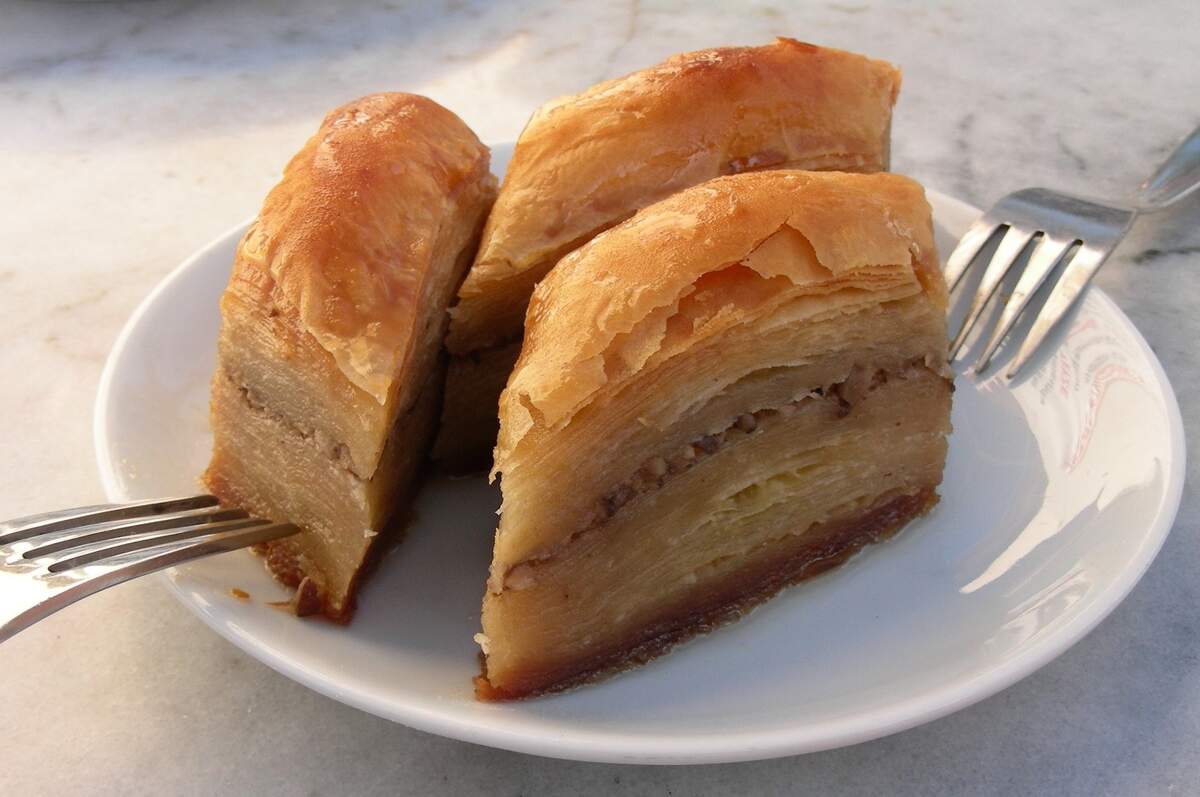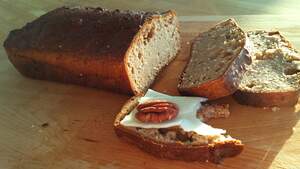

National Baklava Day
Observed
annually on November 17th
Dates
Tags
Food & Drink
Snacks & Desserts
Hashtags
Sources
https://foodimentary.com/2012/11/17/november-17-national-baklava-day/
https://www.arabamerica.com/national-baklava-day-a-celebration-of-a-worldly-pastry/
https://www.britannica.com/topic/baklava
https://www.smithsonianmag.com/travel/the-sticky-history-of-baklava-180982771/
https://www.tazikis.com/blog-backend/nationalbaklavaday
Baklava, a pastry made with flaky phyllo dough and nuts, is celebrated and enjoyed today on National Baklava Day. About 30 to 40 sheets of phyllo, a paper-thin dough made with flour and water, is needed to make baklava. Each sheet is brushed with butter and layered in a pan with finely chopped nuts, like pistachios, walnuts, or almonds. A syrup is poured on it after baking, which is commonly made with honey and lemon juice. The filling or the syrup may be flavored with cardamom, cinnamon, ground cloves, or rosewater.
Turkish, Greek, and Middle Eastern cultures played a role in the creation of baklava, interacting with each other, building on what others had created, and contributing unique regional ingredients. What would become baklava may have originated with the Assyrians, who put chopped nuts between thin layers of unleavened bread with honey in the eighth century BCE. (The Assyrian Empire was located in present-day Kuwait, Iraq, Iran, Turkey, and Syria.) Centuries later, Ancient Roman placenta cake—from the Greek word plakous, which means "cheese cake"—had many layers of dough, was filled with honey and cheese, and was seasoned with bay leaves.
Modern baklava came about in the fifteenth and sixteenth centuries, at the time of the Ottoman Empire. It spread along trade routes and during pilgrimages, making its way through Middle Eastern and Mediterranean cultures. This brought about regional variations, dependent on local ingredients in particular areas.
Greek seamen and merchants came across a dessert called baklava on their travels near Mesopotamia and brought it to Athens. They created thin phyllo—or filo, which means "leaf" in Greek—that they used instead of the original dough, which was similar to bread. They used walnuts along with cinnamon in their baklava. In Turkey, pistachios were used. Arabs introduced rosewater and cardamom and called their pastry baklawa. Armenians, who were connected to the main spice routes, added cinnamon and cloves to their baklava. They made it with walnuts and called it paklava. In Cyprus, almonds were commonly used with walnuts. The syrup varied by region: Algerians used orange-blossom water, Iranians used cardamom and rosewater, and Greeks used honey and lemon.
Since it was expensive to make, and skill was also needed to make it, baklava was only eaten during festive times and was more of a delicacy of the rich. During the Ottoman Empire, it was an important part of Ramadan, where the sultan would give it to elite soldiers called Janissaries during the Baklava Procession. Ottoman Christians baked baklava during Lent. Some Christians baking it used 40 layers of phyllo for the 40 days of Lent, or 33 layers for the 33 years Christ lived. Jews began eating it during Rosh Hashanah and Purim. Today it is one of the most common desserts served for special occasions in Greece, Turkey, and some Balkan countries. But it is eaten all around the world, and at other times too, especially today, on National Baklava Day!
How to Observe National Baklava Day
Enjoy some baklava! Perhaps you could get it from a Greek or Middle Eastern restaurant or bakery. Some restaurants, such as Taziki's Cafe, have offered specials on the day, such as giving out free baklava. You could also make your own!





















